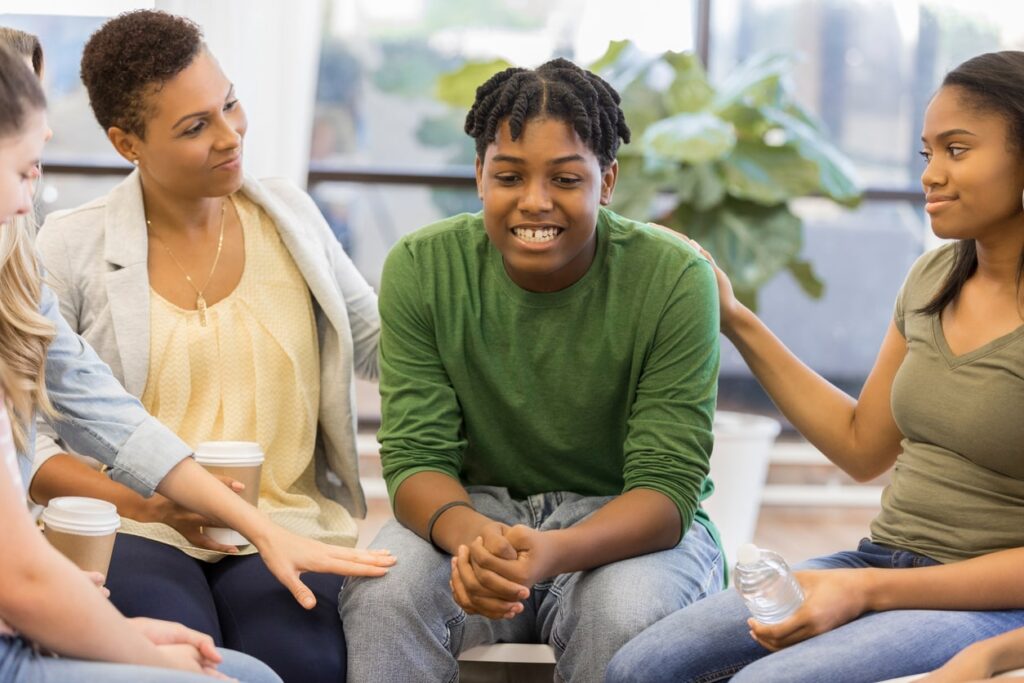Now Reading: How to Find a Support Group for Addiction: A Guide to Connection and Healing
-
01
How to Find a Support Group for Addiction: A Guide to Connection and Healing
How to Find a Support Group for Addiction: A Guide to Connection and Healing

Introduction
Addiction recovery is not a journey you need to take alone. Whether you’re struggling personally or supporting someone you love, connecting with others who understand your experience can be a powerful part of healing. That’s why learning how to find a support group for addiction is so important. Support groups offer a safe, non-judgmental space to share stories, gain strength, and stay motivated.
In this article, we’ll guide you through the process of finding the right addiction support group—locally or online—to support lasting recovery.
Why Support Groups Matter in Addiction Recovery
Support groups play a key role in recovery. They provide more than just a place to talk. These groups offer:
- Emotional support from people who understand addiction
- Accountability to stay on track
- Practical advice for navigating cravings, relapse, and stress
- A sense of community to reduce isolation
According to the National Institute on Drug Abuse (NIDA), ongoing participation in peer support groups significantly increases the chances of maintaining long-term sobriety (NIDA, 2020).
Types of Addiction Support Groups
Before we explore how to find a support group for addiction, it’s helpful to understand the different types available:
1. 12-Step Programs
- Examples: Alcoholics Anonymous (AA), Narcotics Anonymous (NA)
- Based on spiritual principles and peer accountability
- Structured around 12 steps to recovery
2. Non-12-Step Groups
- Examples: SMART Recovery, LifeRing, Women for Sobriety
- Focus on self-empowerment and scientific approaches
- May be more appealing to those seeking alternatives to spiritual models
3. Family Support Groups
- Examples: Al-Anon, Nar-Anon, Families Anonymous
- Designed for those who have a loved one with addiction
- Help family members manage stress and set healthy boundaries
4. Online Support Groups
- Hosted via forums, Zoom, or mobile apps
- Ideal for those in remote areas or with limited time
- Provide 24/7 access to peer support
How to Find a Support Group for Addiction
Now let’s look at actionable steps to help you find the right group.
1. Talk to a Healthcare Provider
Your doctor, therapist, or addiction counselor can recommend support groups that fit your needs. They may also provide referrals to local meetings or treatment centers.
2. Use Trusted Directories
Several websites maintain updated lists of support groups:
- www.aa.org for Alcoholics Anonymous
- www.smartrecovery.org for SMART Recovery
- www.na.org for Narcotics Anonymous
- www.al-anon.org for family support
These platforms allow you to search by location and meeting type (in-person, online, hybrid).
3. Check with Local Treatment Centers
Many rehab facilities and outpatient programs host or sponsor support groups. Even if you aren’t enrolled in their services, they may allow community members to join their groups.

4. Explore Online Forums and Communities
If you’re more comfortable starting anonymously or from home, online groups can be a great first step. Platforms like Reddit, Facebook, and In The Rooms offer:
- Open discussions
- Topic-specific groups
- Global connections
Just be sure the group is moderated and promotes respectful, recovery-focused conversation.
5. Ask for Recommendations
If you know someone in recovery, ask what groups they found helpful. Personal recommendations often lead to the most welcoming and effective communities.
What to Look for in a Good Support Group
Not all support groups are the same. Here’s what to consider:
- Safe and non-judgmental environment
- Regular and consistent meetings
- Supportive and respectful members
- Facilitators or leaders with experience
Try a few groups before deciding. The right fit makes a big difference in your recovery journey.
Real-Life Example: James’s Journey
James, a 34-year-old recovering from alcohol addiction, struggled with relapse after rehab. He felt isolated and ashamed. A counselor suggested he look into support groups.
“I found a local AA group that met every Wednesday. At first, I didn’t say much. But after a few weeks, I felt like I belonged. It changed everything.” – James
James is now two years sober and helps newcomers feel welcome in the same group that supported him.
Tips for Your First Meeting
- Go in with an open mind
- You don’t have to speak until you feel ready
- Respect others’ stories and privacy
- Attend at least 3 meetings before making a decision
Conclusion
Knowing how to find a support group for addiction can make a real difference in your life or the life of someone you love. Support groups offer connection, understanding, and tools for staying sober. Whether you attend in person or online, the key is to reach out and take that first step.
If you’re feeling overwhelmed, start small. Attend a single meeting. Listen. And remember—you’re not alone. Healing is possible, and support is out there waiting for you.
























